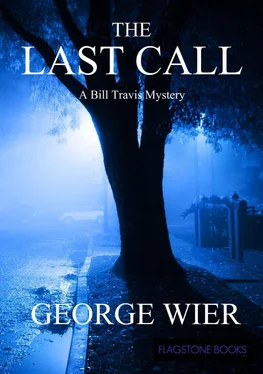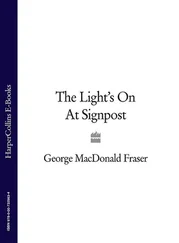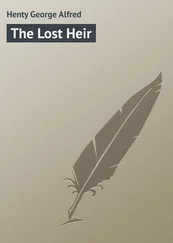George Wier - The Last Call
Здесь есть возможность читать онлайн «George Wier - The Last Call» весь текст электронной книги совершенно бесплатно (целиком полную версию без сокращений). В некоторых случаях можно слушать аудио, скачать через торрент в формате fb2 и присутствует краткое содержание. Жанр: Криминальный детектив, на английском языке. Описание произведения, (предисловие) а так же отзывы посетителей доступны на портале библиотеки ЛибКат.
- Название:The Last Call
- Автор:
- Жанр:
- Год:неизвестен
- ISBN:нет данных
- Рейтинг книги:4 / 5. Голосов: 1
-
Избранное:Добавить в избранное
- Отзывы:
-
Ваша оценка:
- 80
- 1
- 2
- 3
- 4
- 5
The Last Call: краткое содержание, описание и аннотация
Предлагаем к чтению аннотацию, описание, краткое содержание или предисловие (зависит от того, что написал сам автор книги «The Last Call»). Если вы не нашли необходимую информацию о книге — напишите в комментариях, мы постараемся отыскать её.
The Last Call — читать онлайн бесплатно полную книгу (весь текст) целиком
Ниже представлен текст книги, разбитый по страницам. Система сохранения места последней прочитанной страницы, позволяет с удобством читать онлайн бесплатно книгу «The Last Call», без необходимости каждый раз заново искать на чём Вы остановились. Поставьте закладку, и сможете в любой момент перейти на страницу, на которой закончили чтение.
Интервал:
Закладка:
“McMurray,” I said.
“Right.”
I thought about it. About Hank lying there in the hospital. I thought about his new chance at life. About everything he’d told me-that night at the truck stop, a life and death struggle in the dark ending in gunshots. I thought about greed and about bottom-feeders moving around in the murky dark of a lake bed.
“You have the tape, don’t you?” I asked. “You know what McMurray was trying to do to him?”
“Yeah,” Agent Cranford said. “Right here,” he said. He held it up for me to see. The cassette tape had a dingy-brown label on it and Hank’s scribble across it: Creedence Vol. 2.
“Okay,” I said. “I’ll tell you all about it. Everything I know.”
I turned to see Sheriff Thornton looking at me from ten feet away. He was leaning back against a Caterpillar backhoe with his arms crossed and his hat tipped up in front.
“But first,” I said. “Let’s go solve another mystery. A much older one.”
It took the backhoe ten minutes to clear out the entrance to the tornado shelter. When the job was done there was an eight foot pile of mud, clay, rock and manure a few yards away.
The door was composed of rust and concrete, and while there was a large padlock hanging from one fused-together mass of rusted iron, I knew it wouldn’t take much to break through.
“Let me see that sledge,” I said.
A sheriff’s deputy gave me the handle. I dropped down into the pit. The men above me crowded around.
I swung once, twice. On my second pass, the steel head connected with the padlock and the hasp, and both tore free and landed in the mud at my feet.
“Crowbar,” I called up.
One was handed to me after a moment.
I slid the business end between the concrete wall and the doorway and shoved.
Nothing.
“Some help down here,” I said.
One of the sheriff’s deputies, a young fellow in his twenties, dropped down into the hole next to me.
“Together,” I said.
We both shoved on three and then there was a loud creak and an eerie, hollow echo. The door came open an inch, two.
Up above someone wedged a two-by-four into the top of the doorway and shoved.
The door came open, pushing mud out of the way in a smooth arc at our feet.
I stepped into the cellar.
“Who’s the corpse?” the Deputy Sheriff next to me asked.
I stepped over and picked up the stacks of bills and stuffed them back into the satchel. Zipped it up.
“I didn’t know until yesterday,” I said.
Behind us, other men crowded around.
There was a note under a layer of dust on the card table, next to a skeletal hand.
The sheriff was right there beside me. Agent Cranford shoved his way up next to me.
“Go ahead,” I told Sheriff Thornton. “Read it. But before you do, take a look under that jacket. See if you don’t find a tin star.”
The sheriff lifted the jacket. There, pinned to the vest underneath, was a badge.
“What the hell?”
“The United States Government has been wondering what happened to this man for the last eighty years,” I said.
“That’s a fact,” Agent Cranford said.
“What’s his name?” the Sheriff asked.
“Jack Johannsen,” I said. “About eighty years ago this man was a United States Marshal for North Texas, and Oklahoma.”
The sheriff lifted the note from the table, blew dust from it.
“How the hell did he get here?” the sheriff asked.
“Carpin locked him in here. Archie’s grandfather.”
“The note says: ‘Tell my people, I died for someone that I thought was a friend.’ What does that mean?” Sheriff Thornton was looking at me.
“It refers to a betrayal. How familiar are you with your North Texas crime history, Sheriff?” I asked him.
“I know a fair amount,” he said. “But I’m always willing to learn more.” He crossed his arms.
“Okay,” I said. “Back in 1927 the Texas Rangers were sent into the Borger area to establish martial law and clean up the town.”
“I’ve heard about that, all my life,” Sheriff Thornton said.
“Tell him the rest of it, Bill,” Agent Cranford said.
“They shut down the mining camp at Signal Hill and arrested about fifty men. During those days the two most prosperous businesses in those parts was the Sheriff’s Office and the undertaker. It was rough; it was quite literally hell, and even the Sheriff’s Office was on the take, so Governor Moody sent in the Texas Rangers. When they did, a lot of men scattered. As you know, Sheriff, Archie Carpin owned this ranch. His grandfather was partners with a man named Whitey Walker. Walker and Carpin ran Signal Hill and Borger and practically the whole Panhandle of Texas. Walker fled the Rangers and enjoyed a crime spree down in Central Texas until he was killed during an attempted prison escape. But Carpin and his brother, they simply went home. It looks like they brought somebody home with them.”
We all turned to regard the corpse.
“Jack Johannsen was the U.S. Marshal sent into Signal Hill to investigate rumored prohibition violations. He never made it back to civilization.”
I reached into my shirt pocket and brought out the photo that Agent Cranford had given to me at the rest stop two nights ago.
“What’s this?”
“It’s a photo of three men, all sitting at a table enjoying a drink. The one in the middle is Whitey Walker. The one on the right is Matthew Carpin. The fellow on the left,” I said. “I dunno, but it looks a lot like Jack Johannsen. Him,” I pointed. The man in the photo and the crumbling corpse in the chair were wearing the very same clothing.
If I had a camera that could look backwards through time, what might I see? In my imagination the iris on my camera lens opens to reveal a row of Model-T Fords parked in front of a line of hitching rails near the entrance to a clapboard saloon. There is a red patina from clay dust covering everything and an ever-present fiery glow on the horizon, north and south. That glow is there whether it’s night or day. Right this minute it’s nighttime. The air here is a fume. I can hear shouts, catcalls, and the incidental loud pop of a firearm discharging somewhere the next block over. In essence it is Perdition. It is Mordor. It is 1926 in the North Texas oil patch.
Inside the saloon three men sit at a table that is hardly big enough for the elbows of one man. On the table is a bottle of whiskey and three shot glasses.
One of the men is used to carrying a badge, but he isn’t wearing one now. It’s the wrong thing to possess in this place. In the waistband of his slacks, however, is an old Navy pistol. When he stands the whole world can see it, but right this moment he is sitting, sipping his whiskey. The gun alone is enough to deter trouble in this place, unless of course someone knows his secret. If that turns out to be the case, then he will die the way Wild Bill Hickok died: a bullet to the brain from behind. He knows this. But right now his back is to a wall and he is among men who consider him to be a friend.
The whiskey bottle is nearly drained.
One of the regulars in the saloon wanders by, says: “Blackie, can I take youse guys’ picture wid my new camera?”
“Sure, Slick,” one of the men says. “Go right ahead.”
Smiles fade from three faces.
“Say ‘rotgut’.”
“Rotgut,” the three men say in unison. There is a flash of light.
“Thanks, fellahs.”
Slick waves and moves on.
The man in the middle-the one minus the badge-watches a couple of whores pass by through the window across the way from him, follows them and the sound of their laughter as they pass the front of the saloon.
When he turns back again, one of the two men beside him has a gun drawn and pointed at him. The other man across from him pulls a piece of paper out of his pocket and lays it on the table.
Читать дальшеИнтервал:
Закладка:
Похожие книги на «The Last Call»
Представляем Вашему вниманию похожие книги на «The Last Call» списком для выбора. Мы отобрали схожую по названию и смыслу литературу в надежде предоставить читателям больше вариантов отыскать новые, интересные, ещё непрочитанные произведения.
Обсуждение, отзывы о книге «The Last Call» и просто собственные мнения читателей. Оставьте ваши комментарии, напишите, что Вы думаете о произведении, его смысле или главных героях. Укажите что конкретно понравилось, а что нет, и почему Вы так считаете.












